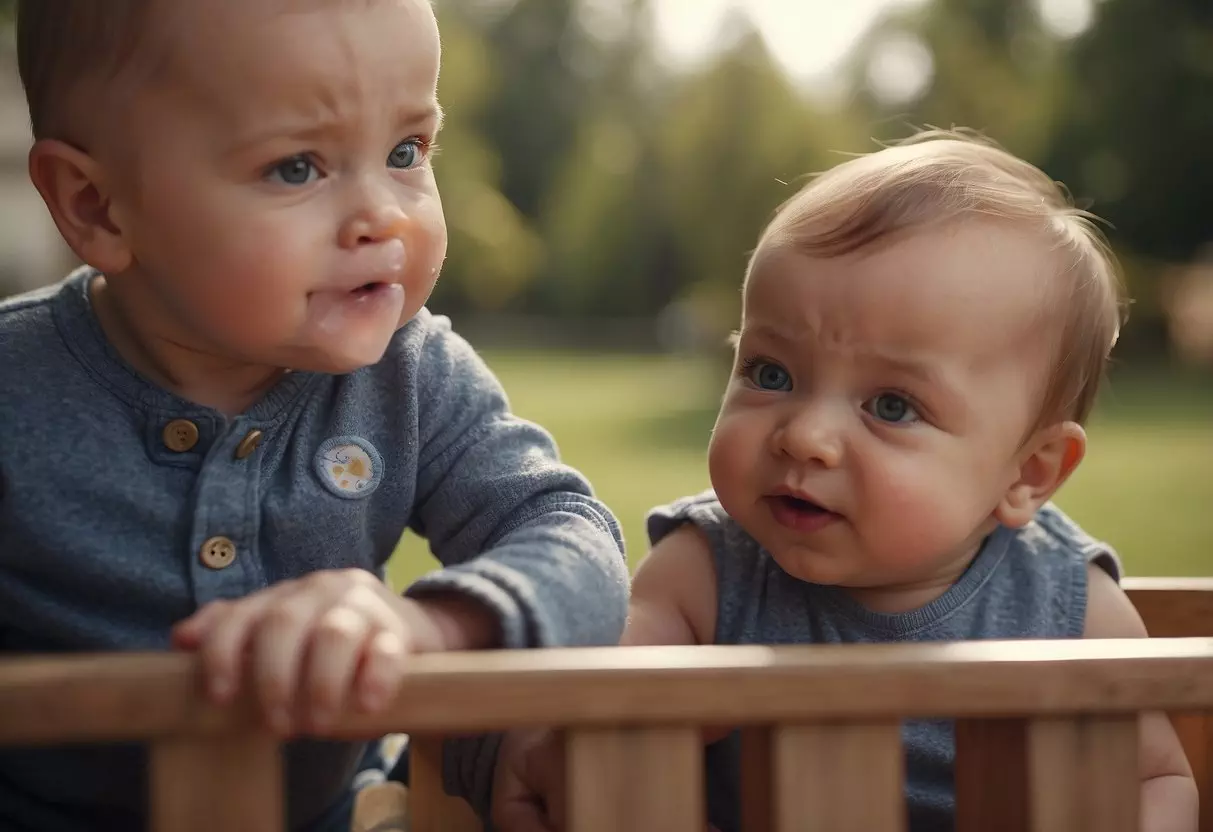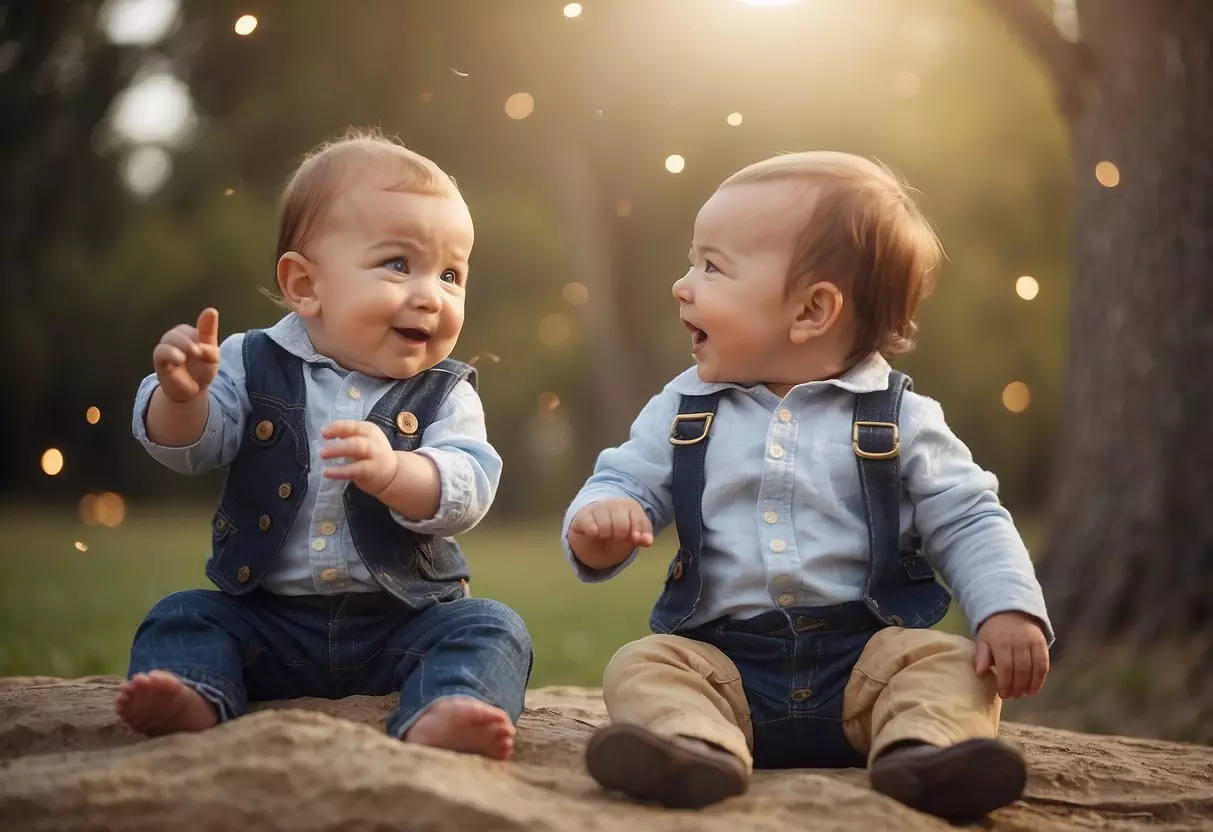At What Age Do Babies Start to Talk? A Helpful Guide for Parents
Watching your baby grow is a magical experience, and hearing their first words is one of the most exciting milestones. Babies typically start to talk—attempting to express themselves with words—anywhere between 9 and 14 months. Before this, they engage in various forms of baby talk, including gurgling and babbling, which pave the way for actual speech.

In the early months, your baby’s sounds will evolve from cooing and gurgling to more complex babbling around 4 to 6 months. You may hear consonant sounds like “g” and “k”, and lip sounds such as “m”, “w”, “p”, and “b” according to Parents. By 12 months, many babies can say simple words like “mama” or “dada” and may have around 50 words in their vocabulary by 24 months as per WebMD.
Encouraging your baby’s language skills from an early age can make a big difference. Talk to your baby frequently, read to them, and respond to their attempts to communicate. These interactions are fundamental in helping your baby develop strong speech and language skills.
Table of Contents
Early Communication Milestones

Babies begin to communicate through cooing and babbling before they start speaking their first words and using gestures to express themselves.
Cooing and Babbling
At around 2 months, your baby may start making cooing sounds. Cooing includes soft vowel sounds like “oo” and “ah.” These sounds are usually made when your baby is content and are their first attempts at communicating.
By 6 months, babbling begins. Your baby will produce repetitive sounds such as “ba-ba” or “ga-ga.” Babbling is more complex than cooing and often includes consonant sounds. This stage is crucial as it lays the foundation for later speech.
During this time, babies also respond to voices and sounds by turning their heads and making eye contact. They might also start showing preferences for certain sounds or voices, usually those of their parents.
First Words and Gestures
By 12 months, some babies say their first words, often simple ones like “ma-ma” or “da-da.” These first words are usually related to important people or objects in their lives. Your baby might also begin using gestures, such as pointing or waving, to communicate needs and interests.
As they approach this milestone, they may use a variety of consonant and vowel sounds, and their babbling will become more speech-like. They often imitate sounds and gestures from adults, which helps in learning language.
Encourage your baby by responding to their attempts at communication and engaging in conversations, even if they are just babbling. This support is essential for their development. For more information, you can read about speech milestones for babies.
Language Development Stages
Language development in babies happens over several stages, each marked by key milestones. These milestones include building vocabulary and forming phrases and sentences.
Building Vocabulary
Babies typically start to develop their vocabulary around their first birthday. By 18 months, many children can say about 10 to 20 words. These words often include names for people, objects, and common actions.
Around 24 months, you might notice your child’s vocabulary growing rapidly. They will likely use around 50 words regularly. These words can vary from “juice” to “Grandma” to “more.” As they get more familiar with words, they also start to follow simple commands and understand more complex instructions.
Forming Phrases and Sentences
By around 18-24 months, children begin to combine words into simple phrases, such as “more juice” or “go outside.” This marks a key stage in language development called the two-word phrase stage. It’s fascinating to see them start to express more complex ideas with just two words.
As they approach their second birthday, these phrases start to evolve into simple sentences. Instead of just saying “want cookie,” your child might say “I want cookie.” This is an important milestone because it shows they are starting to grasp the basics of grammar and sentence structure.
Monitoring and Encouraging Progress

To help your baby start talking, it is important for you to be active and engaged in their speech development. Understanding your role and knowing when to seek additional help can make a big difference.
Role of Parents and Caregivers
As a parent or caregiver, you have a big impact on your baby’s speech development. Interacting with your baby often is key. Talk to your child throughout the day, describing what you are doing.
Reading to your baby regularly is one of the best ways to encourage language skills. Choose books with bright pictures and simple words. Point to the pictures and name the objects. This helps your baby learn new words and sounds.
Singing songs and nursery rhymes can also aid in language learning. Babies love the repetition and rhythm, which helps them remember words.
Don’t forget to narrate your actions and surroundings. By describing what you are doing and what is happening around you, you expose your baby to more words.
When to Consult a Professional
You should be aware of signs that might indicate a speech or language delay. If your baby isn’t babbling by 6 months or isn’t using simple words by 18 months, it might be time to talk to a pediatrician.
Hearing loss can also affect speech development. If you suspect your baby has difficulty hearing, consult your healthcare provider right away. They can conduct tests to check your baby’s hearing.
In some cases, a speech-language pathologist may be necessary. They can provide speech therapy to help your baby catch up. The American Speech-Language-Hearing Association has resources to find a qualified professional.
By staying informed and proactive, you can support your baby’s journey to talking.
